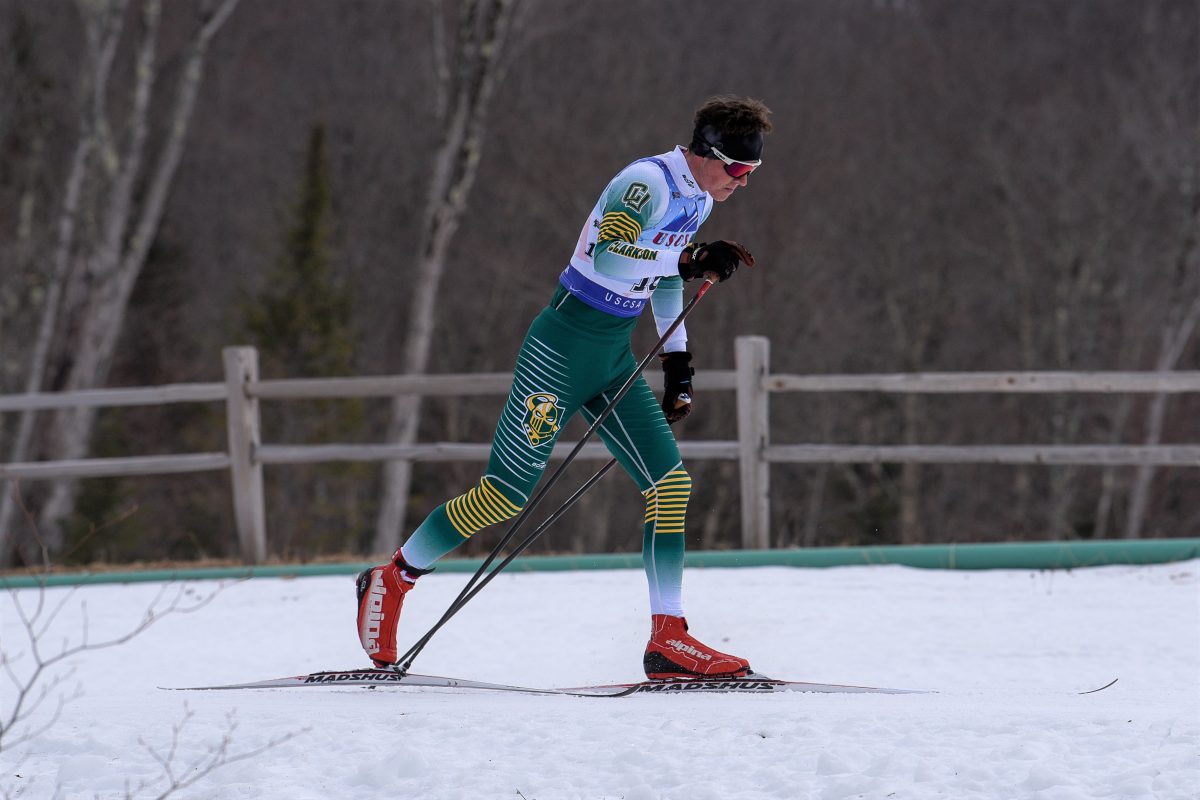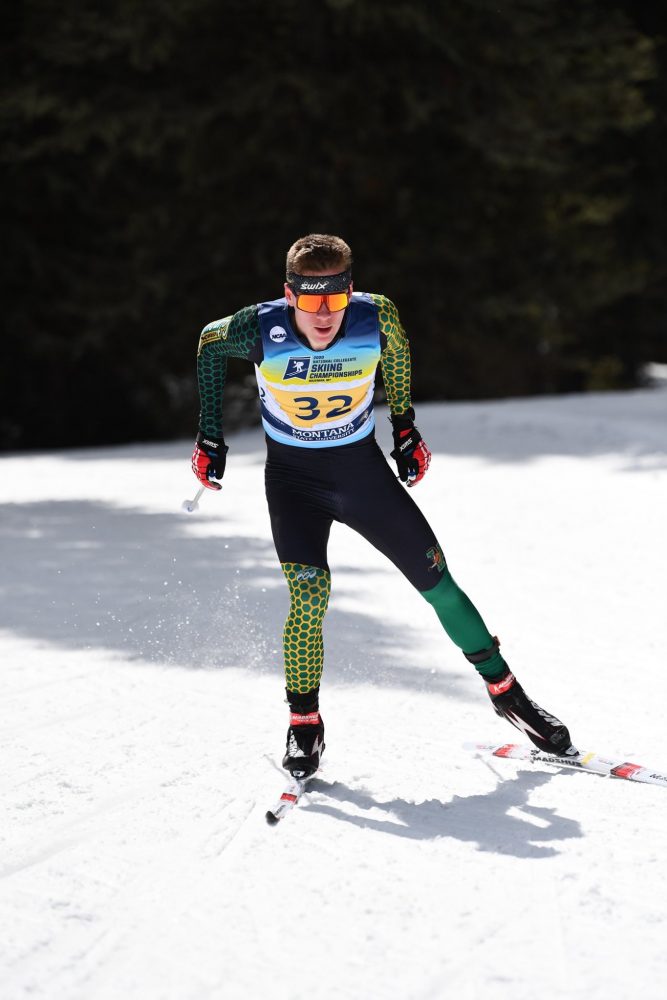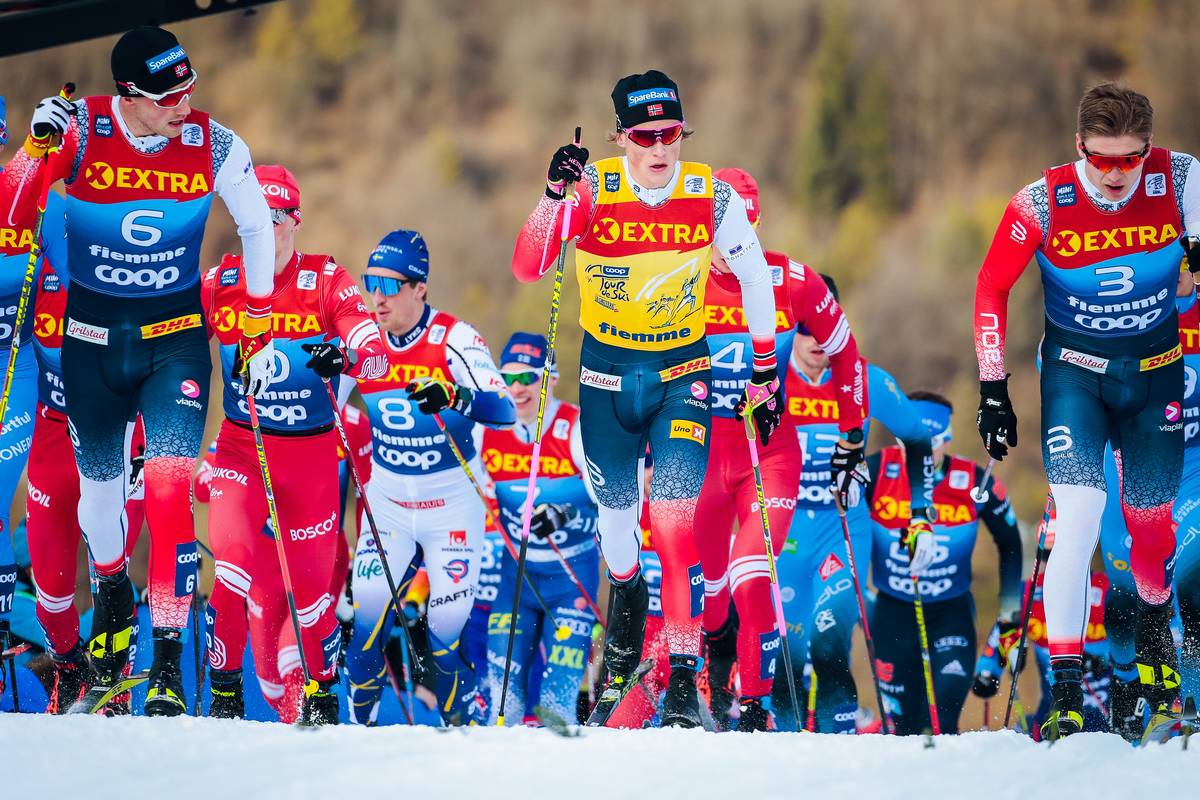
The 2022/23 FIS Cross-Country World Cup will be the 42nd competition organized by the International Ski Federation. The International Ski Federation (FIS) has run the competition since 1981. Men, women, and teams will compete in cross-country skiing events from November 2022 and conclude in March 2023. Groups and individuals from across the globe will compete, making it another as thrilling season for competitors and fans as the online blackjack games.
The qualification system for the world cup is that every competitor has an active FIS code number. In addition, during the last calendar year, they must have reached at least one good result or equalizing for the Sprint World Cup 120 FIS Points, obtained either via Sprint or Distance Disciplines. For the Distance World Cup, men need 60 Distance FIS Points, and women need a minimum of 90 Distance FIS Points. In addition, 120 Distance FIS Points are required for National Group athletes to participate.
The season will travel across a few countries in Europe. It will start in Ruka, Finland, on 25 November 2022 and end on 26 March 2023 in Lahti, Finland. The below table has all the events for the duration of the world cup. This includes the date of the event, the country and town hosting, and the Ski Discipline. Of course, the dates are subject to change, but this is the latest version:
A timetable for FIS Cross-Country Skiing World Cup 22/23
| 25/11/2022
Ruka Finland Ladies Sprint C |
| 25/11/2022
Ruka Finland Men Sprint C |
| 26/11/2022
Ruka Finland Ladies 10 km C |
| 26/11/2022
Ruka Finland Men 10 km C |
| 27/11/2022
Ruka Finland Ladies 20 km F Pursuit |
| 27/11/2022
Ruka Finland Men 20 km F Pursuit |
| 02/12/2022
Lillehammer Norway Ladies 10 km F |
| 02/12/2022
Lillehammer Norway Men 10 km F |
| 03/12/2022
Lillehammer Norway Ladies Sprint F |
| 03/12/2022
Lillehammer Norway Men Sprint F |
| 04/12/2022
Lillehammer Norway Ladies 20 km Skiathlon |
| 04/12/2022
Lillehammer Norway Men 20 km Skiathlon |
| 09/12/2022
Beitostolen Norway Ladies Sprint C |
| 09/12/2022
Beitostolen Norway Men Sprint C |
| 10/12/2022
Beitostolen Norway Ladies 10 km C |
| 10/12/2022
Beitostolen Norway Men 10 km C |
| 11/12/2022
Beitostolen Norway Mixed Relay |
| 17/12/2022
Davos Switzerland Ladies Sprint F |
| 17/12/2022
Davos Switzerland Men Sprint F |
| 18/12/2022
Davos Switzerland Ladies 20 km F |
| 18/12/2022
Davos Switzerland Men 20 km F |
| 31/12/2022
Val Mustair Switzerland – Tour de Ski Ladies Sprint F |
| 31/12/2022
Val Mustair Switzerland – Tour de Ski Men Sprint F |
| 01/01/2023
Val Mustair Switzerland – Tour de Ski Ladies 10 km C Pursuit |
| 01/01/2023
Val Mustair Switzerland – Tour de Ski Men 10 km C Pursuit |
| 03/01/2023
Oberstdorf Germany – Tour de Ski Ladies 10 km C |
| 03/01/2023
Oberstdorf Germany – Tour de Ski Men 10 km C |
| 04/01/2023
Oberstdorf Germany – Tour de Ski Ladies 20 km F Pursuit |
| 04/01/2023
Oberstdorf Germany – Tour de Ski Men 20 km F Pursuit |
| 06/01/2023
Val di Fiemme Italy – Tour de Ski Ladies Sprint C |
| 06/01/2023
Val di Fiemme Italy – Tour de Ski Men Sprint C |
| 07/01/2023
Val di Fiemme Italy – Tour de Ski Ladies 15 km C Mass Start |
| 07/01/2023
Val di Fiemme Italy – Tour de Ski Men 15 km C Mass Start |
| 08/01/2023
Val di Fiemme Italy – Tour de Ski Ladies Final Climb F Mass Start |
| 08/01/2023
Val Mustair Switzerland – Tour de Ski Men Final Climb F Mass Start |
| 21/01/2023
Milano Italy Ladies Sprint F |
| 21/01/2023
Milano Italy Men Sprint C |
| 22/01/2023
Milano Italy Ladies Team Sprint F |
| 22/01/2023
Milano Italy Men Team Sprint F |
| 27/01/2023
Les Rousses France Ladies 10 km F |
| 27/01/2023
Les Rousses France Men 10 km F |
| 28/01/2023
Les Rousses France Ladies Sprint C |
| 28/01/2023
Les Rousses France Men Sprint C |
|
29/01/2023
Les Rousses France Ladies 20 km C Mass Start |
| 29/01/2023
Les Rousses France Men 20 km C Mass Start |
| 03/02/2023
Toblach Italy Ladies Sprint F |
| 03/02/2023
Toblach Italy Men Sprint F |
| 04/02/2023
Toblach Italy Ladies 10 km F |
| 04/02/2023
Toblach Italy Men 10 km F |
| 05/02/2023
Toblach Italy Ladies Relay 4 x 7.5 km |
| 05/02/2023
Toblach Italy Men Relay 4 x 7.5 km |
| 22/02/2023
Planica Slovenia – FIS Nordic World Ski Championships 2023 Ladies 5 km F |
| 22/02/2023
Planica Slovenia – FIS Nordic World Ski Championships 2023 Men 10 km F |
| 23/02/2023
Planica Slovenia – FIS Nordic World Ski Championships 2023 Ladies Sprint C |
| 23/02/2023
Planica Slovenia – FIS Nordic World Ski Championships 2023 Men Sprint C |
| 24/02/2023
Planica Slovenia – FIS Nordic World Ski Championships 2023 Men Skiathlon |
| 25/02/2023
Planica Slovenia – FIS Nordic World Ski Championships 2023 Ladies Skiathlon |
| 26/02/2023
Planica Slovenia – FIS Nordic World Ski Championships 2023 Men Team Sprint |
| 26/02/2023
Planica Slovenia – FIS Nordic World Ski Championships 2023 Ladies Team Sprint |
| 28/02/2023
Planica Slovenia – FIS Nordic World Ski Championships 2023 Ladies 10 km F |
| 01/03/2023
Planica Slovenia – FIS Nordic World Ski Championships 2023 Men 15 km F |
| 02/03/2023
Planica Slovenia – FIS Nordic World Ski Championships 2023 Ladies Relay 4 x 5 km |
| 03/03/2023
Planica Slovenia – FIS Nordic World Ski Championships 2023 Men Relay 4 x 10 km |
| 04/03/2023
Planica Slovenia – FIS Nordic World Ski Championships 2023 Ladies 30 km C Mass Start |
| 05/03/2023
Planica Slovenia – FIS Nordic World Ski Championships 2023 Men 50 km C Mass Start |
| 11/03/2023
Oslo Norway Men 50 km F Mass Start |
| 12/03/2023
Oslo Norway Ladies 30 km F Mass Start |
| 14/03/2023
Drammen Norway Ladies Sprint C |
| 14/03/2023
Drammen Norway Ladies Sprint C |
| 14/03/2023
Drammen Norway Men Sprint C |
| 17/03/2023
Falun Sweden Ladies 10 km C |
| 17/03/2023
Falun Sweden Men 10 km C |
| 18/03/2023
Falun Sweden Ladies Sprint F |
| 18/03/2023
Falun Sweden Men Sprint F |
| 19/03/2023
Falun Sweden Mixed Relay |
| 21/03/2023
Tallinn Estonia Ladies Sprint F |
| 21/03/2023
Tallinn Estonia Men Sprint F |
| 24/03/2023
Lahti Finland Mixed Team Sprint F |
| 25/03/2023
Lahti Finland Ladies Sprint C |
| 25/03/2023
Lahti Finland Men Sprint C |
| 26/03/2023
Lahti Finland Ladies 20 km C Mass Start |
| 26/03/2023
Lahti Finland Men 20 km C Mass Start |
FIS World Cup changes for 2022/23
The 2022/2023 World Cup season has added several new changes. This year the women and men will compete for the first time at the exact distances. The Cross Country Committee voted in favor of this recent change by 57%. It was decided, by the committee, that women could race those equal distances to men. The only issue the committee could see was the time women needed to cover these distances and the possible extra TV time involved.
Another first is that the mixed relays tested at the World Cup in Falun towards the end of the last season have become a permanent feature on the calendar. It will therefore have two runs during the upcoming season. In addition, the FIS points system is being overhauled, so the excitement will last until the final whistle blows.
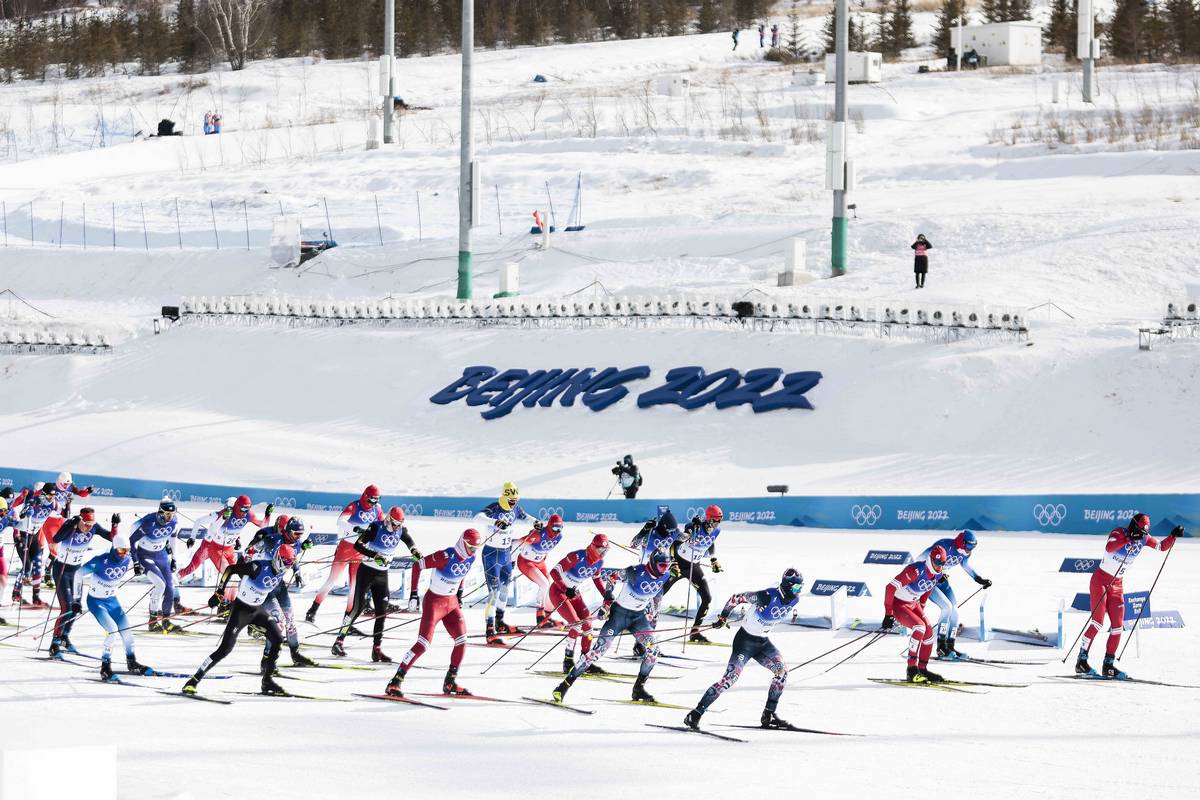
The Rules of the FIS World Cup
The main aim for competitors in the world cup is to achieve the most points during the season. Two skiing disciplines count: Distance and Sprint. In addition, the competitions can be held with individual or mass starts, and the techniques can be either classic or free. In the sprint races, the athletes are sorted into heats. First, the 30 fastest skiers will qualify for the sprint’s quarter-finals. After that, the 12 top skiers will advance to the semi-finals, and the top 6 skiers will participate in the final. The sprint races are a maximum of 1.8 kilometers.
If a FIS World Cup Competition cannot occur, it can take place at another location or be postponed. However, preference is always given to the original country hosting the event. Reasons for not being able to go ahead are often down to the weather conditions, so will often be a last-minute change of plans.
Tiebreakers can occur in the competition when 2 or more nations finish with the same points. In this situation, the country with the greatest number of first places, second places, third, and the best results will be deemed the winner.
The points system works as follows in the World Cup Races:
- Ordinary World Cup Races
- Winner – 100 points
- Second place – 60 points
- Third place – 60 points
- Stage World Cup Races/Tour de Ski/World Cup Finals and Mini Tours
- Winner – 50 points
- Second place – 46 points
- Third place – 43 points
In addition, the top 30th places receive points, with the 30th place receiving 1 point, 29th getting 2 points, 28th will receive 3 points, etc.
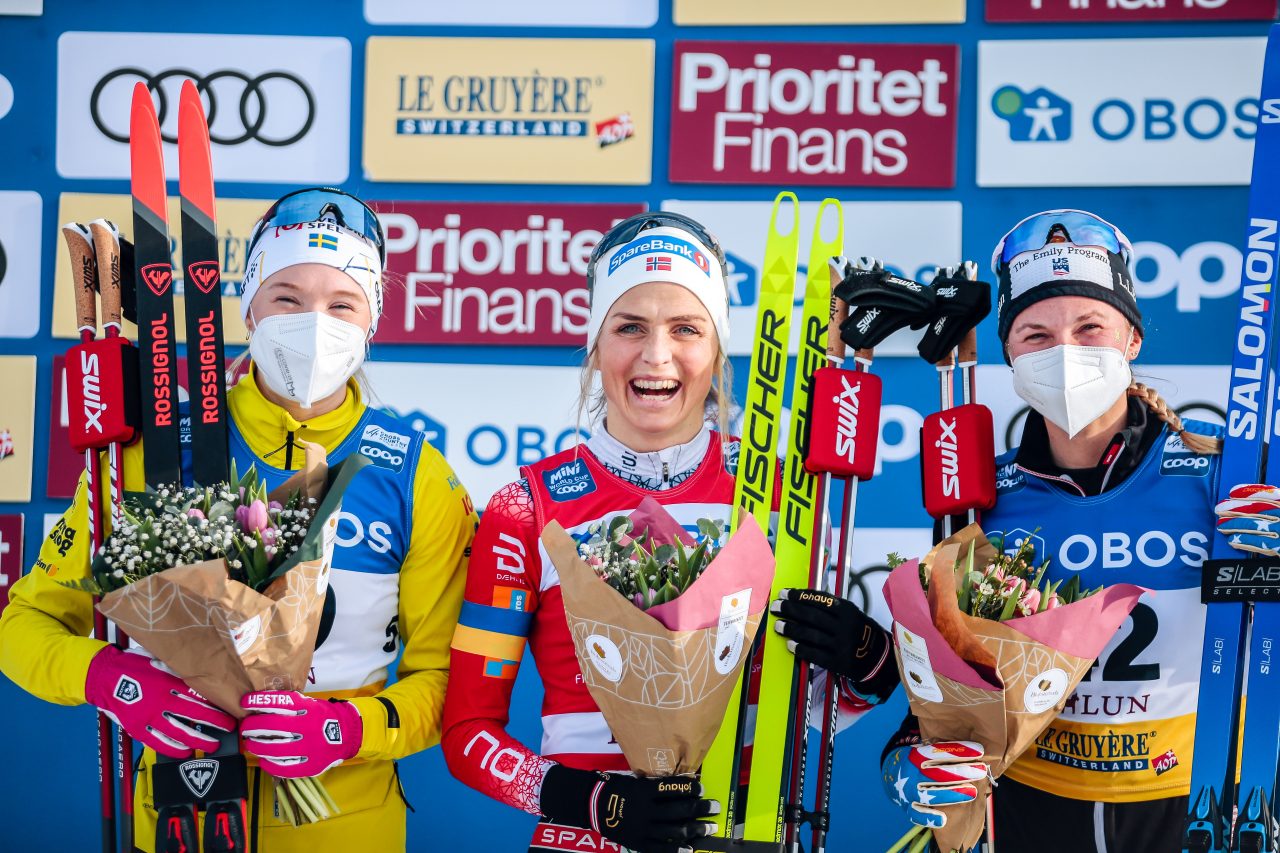
Winner
The winners in the Stage World Cup are awarded 400 points for a Tour De Ski victory, and an overall win in a World Cup Final or mini tour awards 200 points. At the end of the season in March, the athlete that finishes with the most points will win the Overall World Cup. The Trophy the athletes receive consists of a 9-kilogram crystal globe. Smaller prizes are also awarded to the Sprint World Cup winner and the Distance World Cup. Winning one of these gets the athlete a more miniature 3.5kg crystal globe.
A new World Cup point table is currently being compiled. It will close gaps between the athletes in the Overall standings without devaluing the top results. In addition, the table will allow more athletes to score the World Cup Points and give a higher value for the Distance athletes to participate in the Sprint Races and vice versa. This new table will be uploaded into the Rules of the World Cup as soon as the FIS Council approves.
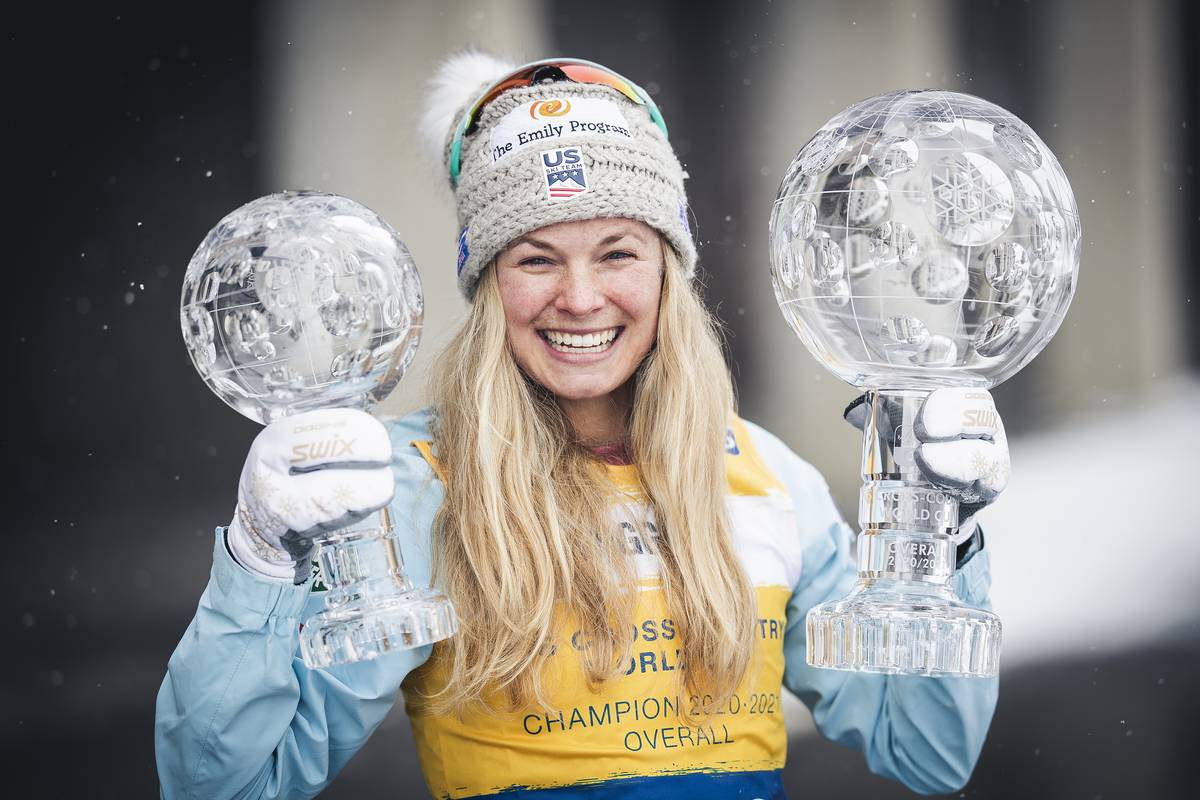
Interesting skiing information
A non-competitive skier will achieve speeds of between 7-10 mph. Professional skiers in cross-country races will reach an average speed of 15mph on long distances. A top XC racer can achieve 20-25mph speeds on flats and downhills up to 35-40mph. A new skier starts every second, and the winner is the one with the best time, not the competitor who crosses the finish line first.
The success of a skier is also very much down to the ski brands used. Although the skiers need skill and talent, the materials used are essential to aim for that No 1 spot.
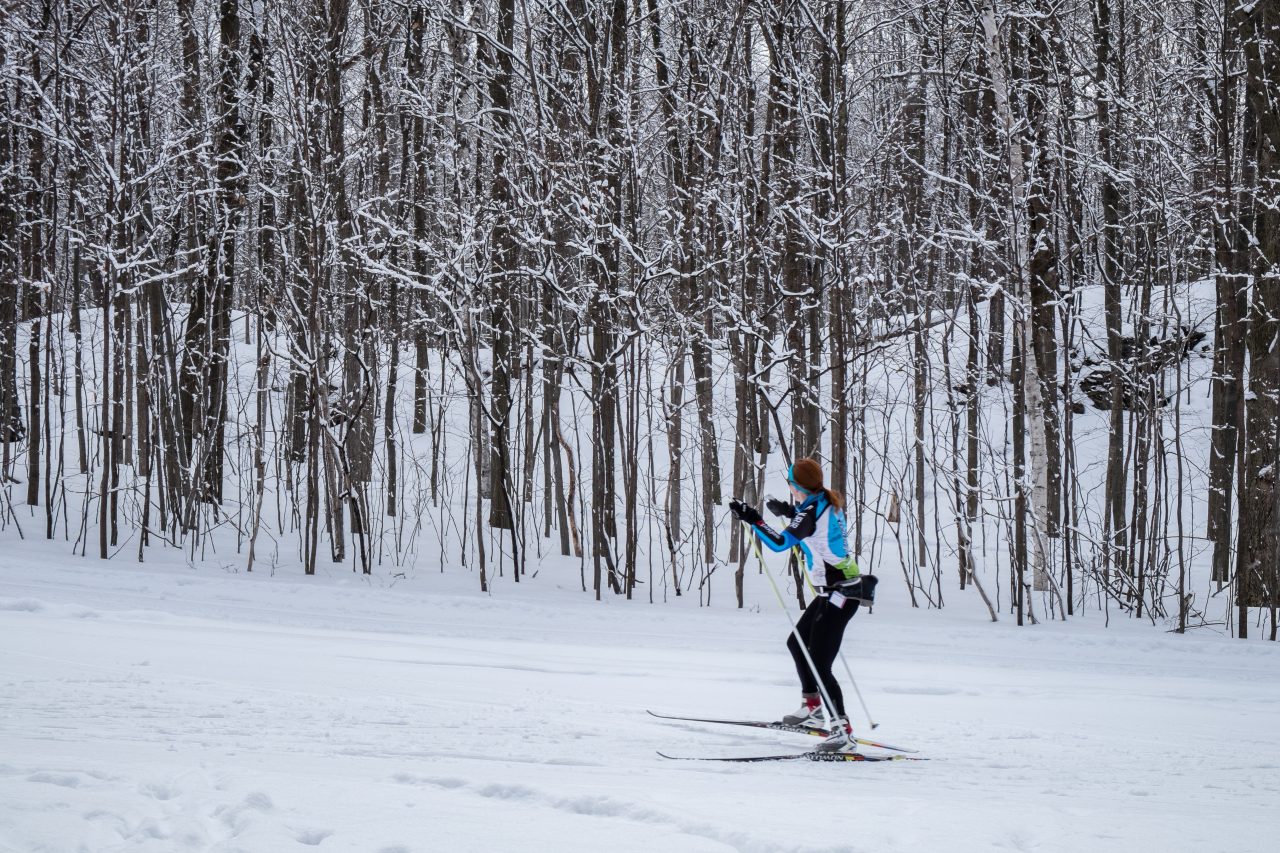
Benefits of XC Skiing
There are so many benefits of Cross-Country Skiing, the foremost being:
- A full body workout
- Lots of calories are burnt.
- Cardiovascular endurance is improved.
- High levels of physical fitness
- Improves endurance
- Helps relieve stress
Top Competitors and countries
The Nordic countries hold the top medals in cross country skiing, Sweden takes the top spot in 1st place, Norway comes in 2nd, and Finland currently stands at 3rd place.
As Norway’s legendary, Bjørn Dæhlie, who won an impressive eight gold and four silver Olympic medals, was 6 times world Cup Champion and 9 times World Championship gold medalist, said about his extraordinary career, “You didn’t win on your own in your sport, either. If you had the best ski waxer and the best coach, you would eventually do well. Skilled people come together in the right way. It’s partly luck, partly correct decision-making, hard work, and having a good team. If most of the decisions you make are the right ones, you can afford to make the odd mistake.”
In addition, Jessie Diggins is one to watch at the upcoming World Cup and was the first US woman to win medals at the Olympics in cross-country skiing.
Conclusion
The modern cross-country skiing of today originated in Scandinavia, where Danish, Swedish, and Norwegian soldiers used cross-country skiing as part of their military exercises and training. As a result, the first competitive race was held in Norway and still resembles the modern competitions of today.
The World Cup 2022/23 will be watched in many homes and on TVs across the globe. Excitement, adrenaline, and wow moments will surely be part of this year’s exciting competition, and expectations will be high amongst teams and competitors, aiming to improve on previous scores and all aiming for that no 1 position.
If you want to stay up to date with all the latest news, you can follow the FIS Cross Country on Twitter @ https://twitter.com/fiscrosscountry/with_replies?lang=en.


